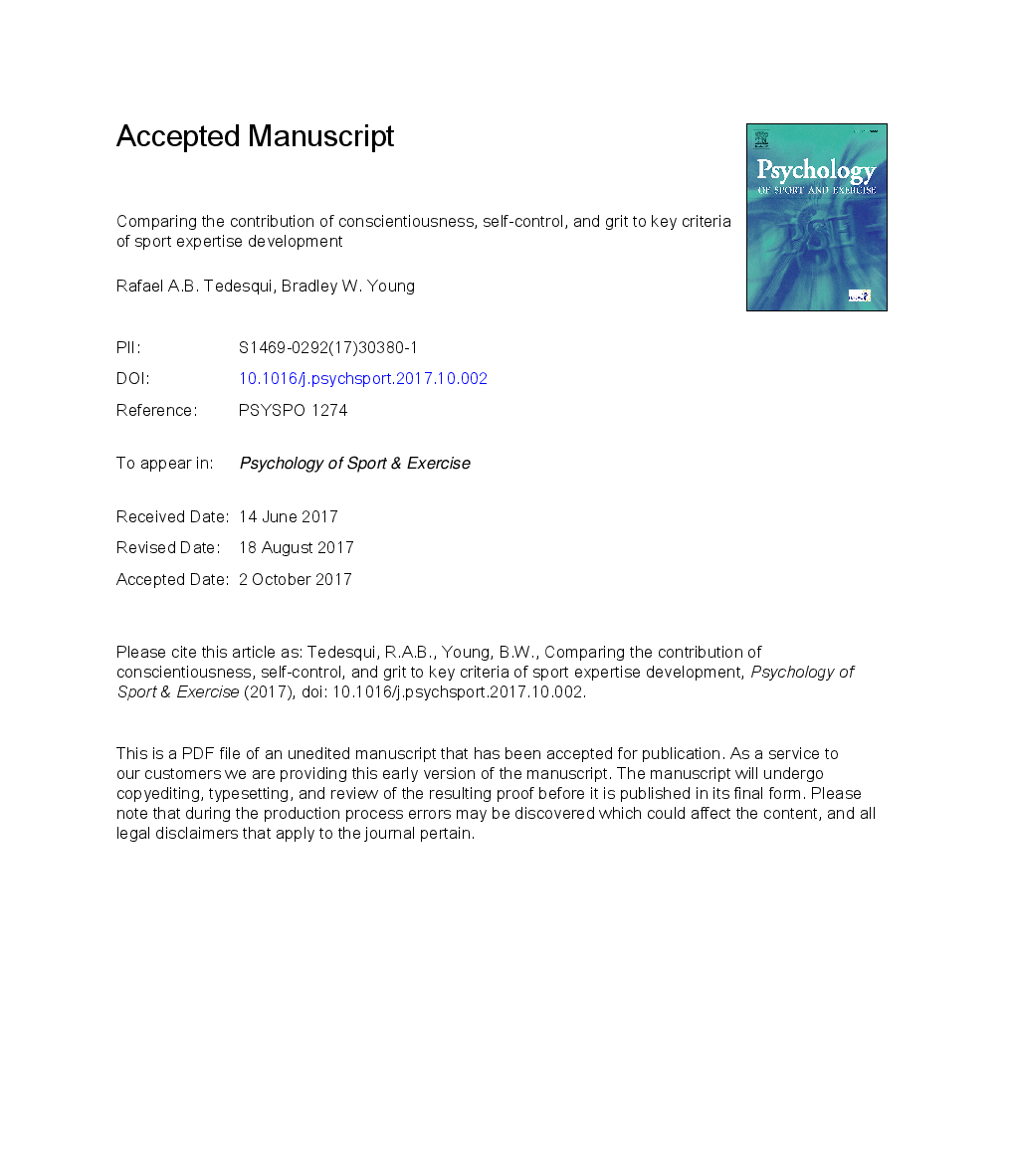ترجمه فارسی عنوان مقاله
مقایسه سهم وجدان، خودکارآمدی و غلبه بر معیارهای کلیدی توسعه مهارتهای ورزشی
عنوان انگلیسی
Comparing the contribution of conscientiousness, self-control, and grit to key criteria of sport expertise development
| کد مقاله | سال انتشار | تعداد صفحات مقاله انگلیسی |
|---|---|---|
| 129902 | 2018 | 39 صفحه PDF |
منبع

Publisher : Elsevier - Science Direct (الزویر - ساینس دایرکت)
Journal : Psychology of Sport and Exercise, Volume 34, January 2018, Pages 110-118
ترجمه کلمات کلیدی
شخصیت، تمرین دقیق، استقامت تلاش، ثبات منافع، شناسایی و توسعه استعدادهای درخشان،
کلمات کلیدی انگلیسی
Personality; Deliberate practice; Perseverance of effort; Consistency of interests; Talent identification and development;

